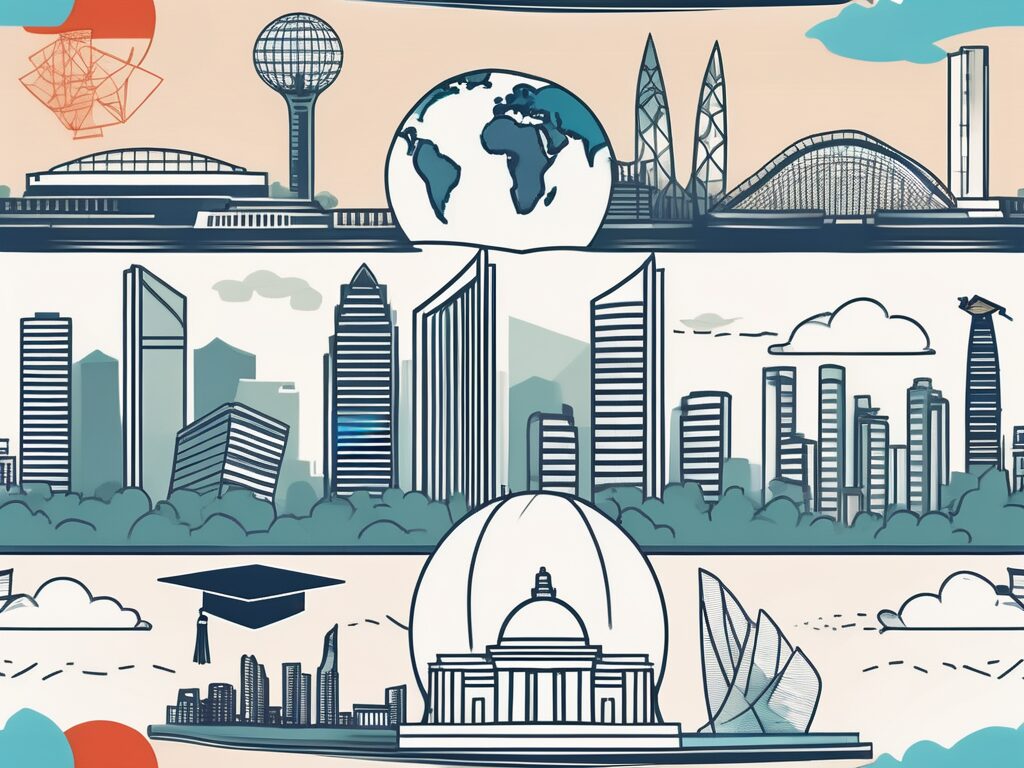The world is becoming increasingly interconnected, and education is no exception. In the bustling city-state of Singapore, a new focus on global citizenship education is emerging. This approach aims to equip students with the knowledge, skills, and values necessary to navigate the complexities of our globalised world. For educators looking to specialise in this area, a Master’s in Education can provide a solid foundation. Here are five insights into how this advanced degree can enhance your understanding and delivery of global citizenship education in Singapore.
1. Understanding the Concept of Global Citizenship
Defining Global Citizenship
Before we delve into the specifics, it’s crucial to understand what global citizenship entails. In essence, it’s about recognising our interconnectedness and shared responsibility to our planet and each other. It’s about fostering a sense of belonging to a broader community and common humanity, beyond national borders. It’s about understanding and navigating the social, political, and environmental impacts of globalisation.
The Role of Education
Education plays a pivotal role in cultivating global citizens. It’s not just about imparting knowledge; it’s about shaping attitudes and behaviours. It’s about encouraging critical thinking and empathy, promoting social justice and sustainability, and empowering students to take action for a better world. In this context, a Master’s in Education can equip educators with the theoretical knowledge and practical skills to effectively incorporate global citizenship education into their teaching practices.
2. The Singaporean Context
Global City, Global Citizens
As a global city, Singapore is uniquely positioned to champion global citizenship education. Its diverse population and strategic location at the crossroads of East and West provide a rich backdrop for exploring global issues and perspectives. Moreover, its education system is renowned for its rigour and high standards, offering a robust framework for integrating global citizenship education.
Policy and Curriculum
At the policy level, Singapore’s Ministry of Education has expressed commitment to nurturing globally-minded citizens. This is reflected in the national curriculum, which emphasises 21st-century competencies such as critical and inventive thinking, communication, collaboration, and cultural awareness. A Master’s in Education can provide a deeper understanding of these policies and curricula, enabling educators to align their teaching practices accordingly.
3. Master’s in Education: A Pathway to Specialisation
Deepening Knowledge and Skills
A Master’s in Education can offer a comprehensive exploration of educational theories, research, and practices. It can deepen educators’ understanding of learning processes, pedagogical strategies, and assessment methods. In the context of global citizenship education, it can provide insights into how to foster global awareness, critical thinking, empathy, and action-oriented learning.
Research Opportunities
Furthermore, a Master’s programme often involves a research component. This can provide an opportunity to investigate specific aspects of global citizenship education, contributing to the field and informing your own teaching practices. For instance, you might explore how global issues are represented in textbooks, how students perceive their role as global citizens, or how different pedagogical approaches impact students’ global awareness and attitudes.
4. Practical Applications
Curriculum Integration
With a Master’s in Education, educators can more effectively integrate global citizenship education into their teaching. This could involve incorporating global issues and perspectives into different subjects, using pedagogical strategies that promote critical thinking and empathy, or creating learning experiences that connect students to the wider world.
Professional Development
Beyond the classroom, a Master’s degree can also open doors for professional development. It can enhance your credibility as an educator, increase your career advancement opportunities, and enable you to contribute to policy-making or curriculum development at a higher level.
5. The Bigger Picture
Preparing Students for the Future
In an increasingly globalised world, education needs to prepare students not just for exams, but for life. Global citizenship education can equip students with the skills and mindsets needed to thrive in a diverse, interconnected, and rapidly changing world. By pursuing a Master’s in Education, educators can play a pivotal role in this endeavour.
A Collective Effort
Ultimately, global citizenship education is not just the responsibility of educators, but a collective effort. It involves parents, communities, policymakers, and students themselves. As educators, we can lead the way, but we also need to collaborate with others, advocate for supportive policies, and empower our students to take ownership of their learning and their role as global citizens.
In conclusion, a Master’s in Education can provide a powerful platform for educators to champion global citizenship education in Singapore. It’s about deepening our understanding, enhancing our practices, and ultimately, making a positive impact on our students and our world.
Advance Your Role in Global Citizenship Education
As an educator committed to shaping global citizens, your journey doesn’t end here. The IQTS at UWE offers the International Qualified Teacher Status (iQTS) Programme, designed to elevate your professional standing and connect you with a wider community of educators. Embrace the opportunity to enhance your career progression, deepen your understanding of international curricula, and balance your professional development with your existing commitments. Make Your Next Step towards becoming a more adaptable, well-connected, and qualified educator in the global landscape. Join the iQTS programme now and be the change you wish to see in the world of education.

